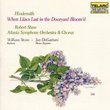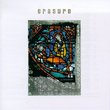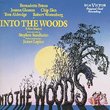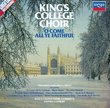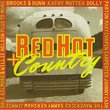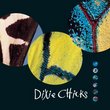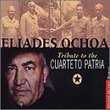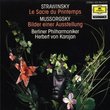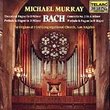| All Artists: Karl Amadeus Hartmann, Leon Botstein, Jard Van Nes, London Philharmonic Orchestra Title: Hartmann: Symphonies No. 1 & No. 6; Miserae Members Wishing: 0 Total Copies: 0 Label: Telarc Release Date: 7/27/1999 Genre: Classical Styles: Historical Periods, Modern, 20th, & 21st Century, Symphonies Number of Discs: 1 SwapaCD Credits: 1 UPC: 089408052828 |
Search - Karl Amadeus Hartmann, Leon Botstein, Jard Van Nes :: Hartmann: Symphonies No. 1 & No. 6; Miserae
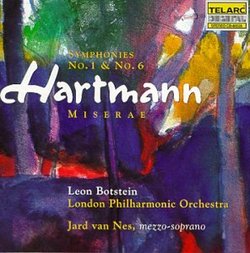 | Karl Amadeus Hartmann, Leon Botstein, Jard Van Nes Hartmann: Symphonies No. 1 & No. 6; Miserae Genre: Classical
|
Larger Image |
CD DetailsSimilarly Requested CDs
|
CD ReviewsVivid, exciting symphonies 02/17/2000 (5 out of 5 stars) "Out of the throng of German artists who played along with or actually supported the Nazi regime (Richard Strauss, Webern, Karajan, Hindemith for a time, and many others) came Karl Amadeus Hartmann, a strikingly original composer who refused to have his music published or performed for many years under the fascists. After the war, Hartmann pulled the works he had written out of the drawer, revised them or reworked them into new works, and published them. The Symphony no. 1, a setting of Walt Whitman poems for alto and orchestra, is a dark and vivid work (although the dark element is certainly predominant). The real reason to recommend this CD, though, is the Symphony no. 6, a rhythmically exciting and explosive piece that Hartmann reworked from an earlier symphonic poem on Zola's novel L'Oeuvre. A prominent feature in this work is the virtuoso percussion work and a recurring English horn theme that is vaguely reminiscent of the famous solo in The Rite of Spring. This symphony belongs on the repertoire of the great 20th century symphonies (such as those of Shostakovich, Prokofiev, and Henze), and anyone who is not afraid of a little dissonance should check this CD out. It is not easy music, exactly, but neither is it terribly difficult to anyone who appreciates modern music." Tremendous works deadly_frog | Indianapolis, IN | 02/16/2006 (5 out of 5 stars) "I found these works strikingly gripping, enough to convince me that Hartmann is amongst the great composers of the twentieth century. He does this not by lunging into atonality, serialism, and many of the trappings of modernism that baffle the uninitiated, but through a remarkable directness that holds its roots in a rich tradition without being prey to it. It is hardly just to label music this poignant as arid academicism. A quote comes to mind that Hans Werner Henze rarely wrote abstract music, but rather wrote about people. I am not knowledgeable to comment on how this applies to Hartmann, but for me it captures what I believe I sense in Hartmann as much as it does in Henze." For Adventurous Audiophiles Karl W. Nehring | Ostrander, OH USA | 07/19/2009 (4 out of 5 stars) "There is music that I recommend to everyone, then there is music that I recommend primarily for those with specific musical tastes; or, to look at it another way, I try to warn those with very conservative musical tastes that they might not find a disk to their liking. Yes, I wish they would try these disks anyway, but I do strive to be open about my recommendations.
The music of Karl Amadeus Hartmann (1905-1963) is music that I would recommend primarily to those who enjoy the more challenging music of Mahler and Shostakovitch, and who might have a few recordings by composers such as Berg sitting on their shelves. This Telarc disk, superbly engineered by Tony Faulkner, features three works by Hartmann. Symphony No. 1 is in five movements, the outer four of which feature the mezzo singing with the orchestra. The central movement, purely instrumental, comprises a theme and variations. The texts were adapted by Hartmann from poetry by Walt Whitman; bleak in their outlook, they reflect Hartmann's anguish at the horrors of life under the Third Reich. The work seems dreamlike at times, a fitful, worrisome dream, compelling in its intensity. No, this is not a piece for everyone, but for those willing to give it a listen, it can be musically and emotionally rewarding. Symphony No. 6 is a relatively brief (about 25 minutes) orchestral work in two movements. To these ears, it does not really come across as a complete symphony, but is musically interesting, especially in the second movement, which is quite energetic. The symphonic poem Miserae that concludes this disk returns to a more somber, reflective mood. Once again, we hear music that seems to be haunted by unsettling dreams. With excellent sound quality throughout, featuring powerful bass and a good sense of depth and orchestral spread, this is a disk that musically adventurous audiophiles might want to give a try. You've been both encouraged and warned." |

 Track Listings (12) - Disc #1
Track Listings (12) - Disc #1